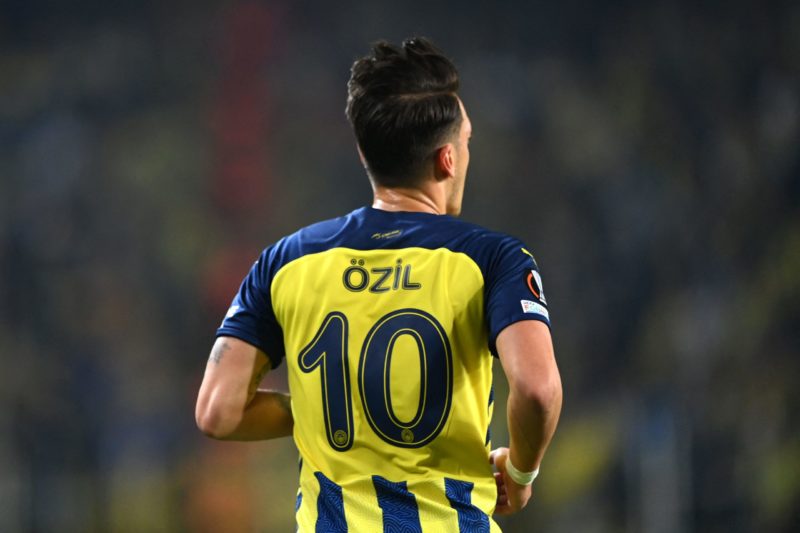Two years ago on 25 January Mesut Ozil finally left Arsenal, so how has he fared since his ‘dream move’ to Fenerbahce?

After handing Mesut Ozil a massive contract, the player’s form at Arsenal fell through the floor and it wasn’t long before they shipped him off.
Although most believed it to be a free move after his contract was cancelled, his agent, was adamant that it was a free transfer meaning that Arsenal could potentially recoup some of their losses should he be sold on. That will not be happening.
Taking an 80% paycut to sign for his boyhood club on 25 January 2021, things did not go well for Ozil.
After playing just 418 minutes for them, Ozil found himself on crutches with an ankle ligament tear.
Things barely got better when he was fit, which wasn’t that often.
A bout of covid, the flu (twice), groin strains (plural), and multiple back problems all meant that Ozil played just 37 times for Fener, averaging 60 minutes per game and scoring nine, with three assist.
Things got so bad that by the summer of 2022, Fenerbahce cancelled his contract and Ozil signed for their rivals, Basaksehir, for free.
Since signing for them in the summer, the midfielder, who is now 34 and valued at around €1m, has played just 137 minutes, 45 of which were with their reserves. He has been sidelined since September with yet another back issue.
His back issue seems to be ‘fine’, for now, with Ozil returning to play 10 minutes in a 3-1 win over Kasimpasa on Saturday.
Ozil’s contract with Basaksehir expires in the summer and it’s hard to see him getting a new one. Will he head to Saudi Aradia or the MLS or simply hang up his boots?
The latter seems the most likely option given how little Ozil seems bothered by playing for the last few years and it’s a real shame to see his career fizzle out in this manner.
Mesut Ozil

Ozil began his professional career at Schalke 04, before moving to Werder Bremen in 2008.
He won the DFB-Pokal with Werder Bremen in 2009, and was named the competition’s best player.
In 2010, he joined Real Madrid for a transfer fee of €15 million. He won La Liga in 2011–12 and reached the semi-finals of the Champions League in 2010–11 and 2012–13.
In 2013, Ozil joined Arsenal for a then club-record fee of £42.5 million.
Ozil was widely regarded as one of the best playmakers in the world, known for his technique, creativity, and vision.
He won numerous individual awards, including the German Footballer of the Year in 2011, 2013, and 2016. He was also named in the UEFA Team of the Year and the FIFA FIFPro World XI.
On the international level, Ozil represented Germany in three FIFA World Cups and three UEFA European Championships. He was a key player for the German team that won the 2014 FIFA World Cup, and was awarded the Silver Ball as the tournament’s second-best player.
Ozil has also been involved in several controversies throughout his career.
In 2018, he caused a stir in Germany by posing for a photograph with Turkish President Recep Tayyip Erdogan. Ozil, who is of Turkish descent, later retired from international football, citing discrimination and racism as the reasons for his decision.
Off the field, Ozil is known for his philanthropy and charitable work. He has made significant donations to various charitable organisations, including ones that support children with cancer.
Ozil never played for another club more than he played for Arsenal (254 appearances), scoring 44 goals and assisting 78 times.
He also helped Arsenal end their trophy drought when they won the FA Cup in 2014, a trophy he won four times with Arsenal.
